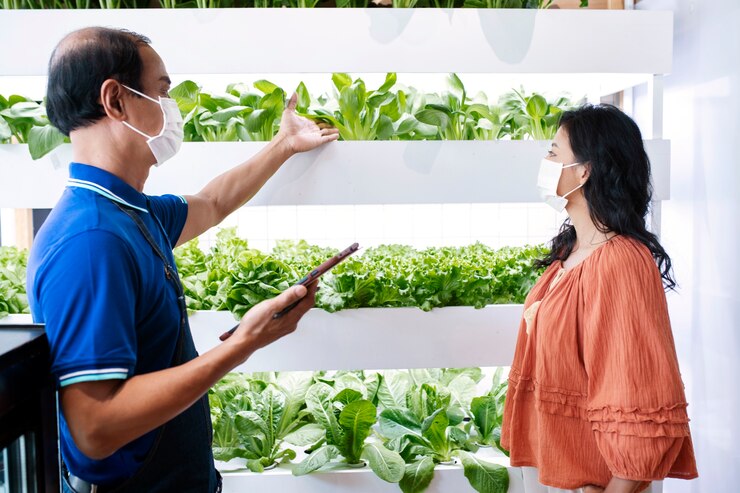As urban populations continue to grow, the importance of urban agriculture in ensuring food security and sustainability has become increasingly apparent. Urban agriculture refers to the practice of growing, processing, and distributing food within or around urban areas. Here, we’ll delve into the opportunities and challenges of urban agriculture and its potential to address food security concerns in urban settings.
1. Utilizing Urban Spaces for Food Production:
Urban agriculture makes use of various spaces, including rooftops, vacant lots, community gardens, and even indoor facilities like warehouses and shipping containers. By repurposing underutilized urban spaces for food production, cities can increase local food production, reduce transportation emissions, and enhance food access for residents.
2. Enhancing Food Security and Nutrition:
Urban agriculture contributes to food security by providing fresh, nutritious produce directly to urban communities. By shortening the supply chain and reducing reliance on imported food, urban agriculture can improve food access and affordability, particularly in low-income neighborhoods and food deserts where access to fresh produce is limited.
3. Promoting Environmental Sustainability:
Urban agriculture practices such as composting, rainwater harvesting, and organic farming can promote environmental sustainability and resilience. By reducing food waste, conserving water, and promoting biodiversity, urban agriculture contributes to climate change mitigation and ecosystem health in urban environments.
4. Fostering Community Engagement and Social Cohesion:
Community gardens, urban farms, and farmers’ markets serve as hubs for community engagement, education, and social interaction. These spaces bring together people from diverse backgrounds, fostering a sense of belonging, empowerment, and shared responsibility for food production and environmental stewardship.
5. Overcoming Challenges and Barriers:
Despite its potential benefits, urban agriculture faces various challenges, including limited access to land, zoning regulations, soil contamination, and lack of infrastructure and resources. Addressing these challenges requires supportive policies, investment in urban agriculture infrastructure, and partnerships between government, community organizations, and private stakeholders.
6. Scaling Up and Replicating Success Stories:
Scaling up successful urban agriculture initiatives requires collaboration and knowledge sharing among stakeholders. Governments can support urban agriculture through policy incentives, land allocation, technical assistance, and financial support. Building networks and partnerships can help replicate successful models and adapt them to local contexts.
In conclusion, urban agriculture holds tremendous potential to enhance food security, promote environmental sustainability, and strengthen community resilience in urban areas. By recognizing the value of urban agriculture and investing in supportive policies and initiatives, cities can become more self-reliant, healthy, and sustainable food systems.
Stay tuned for our next exploration into another critical topic shaping the future of agriculture and sustainable food systems.
